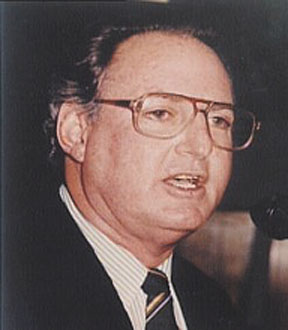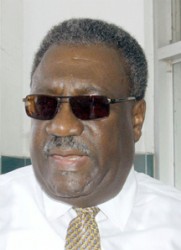Dave Cameron clearly takes the knowledgeable, if long suffering, public of the West Indies to be gullible simpletons.
The West Indies Cricket Board (WICB) president somehow expects his explanation for the confirmed omission of Dwayne Bravo, as well as Kieron Pollard, from the squad for the forthcoming World Cup in Australia and New Zealand to be swallowed, without even a pinch of salt.
In reality, it lacks cricket credibility.
Chris Gayle’s angry response after his whirlwind, Man of the Match 90 in West Indies’ astonishing victory in the second Twenty20 against South Africa on Sunday was heartfelt and predictable. As typically forthright in his opinions as he is with his bat, he described the dismissals of Bravo and Pollard as “ridiculous” and “sad”.

He saw it as “victimization”, obviously referring to Bravo’s role as captain and vocal players’ spokesman in their acrimonious disagreement with the WICB and the West Indies Players Association (WIPA) over a new contract, presented to them after arrival in Delhi.
If Gayle’s sympathies might have been clouded towards his long-time teammates, the neutral reactions on television of Kepler Wessels and Shaun Pollock, both former South African captains, were equally strong.
Both spoke from a purely cricketing perspective; “shock” and “disbelief” were words used. Wessels said their absence robbed the game’s major global tournament of two of its most identifiable individuals, both highly regarded in Australia.
For all that, Cameron asserted that the selection was made solely on merit by “some of the biggest legends we have in West Indies cricket” whose judgment was unanimously supported by his board.
It is impossible to fathom how chairman of selectors, Clive Lloyd, and a fellow member of his panel, Courtney Walsh, with the knowledge of 242 Tests and 292 ODIs between them and each with a lifetime in the game, could come to such a conclusion without other considerations.
Bravo’s all-round performances earned him selection as the only West Indian in the ICC’s composite ODI eleven for 2014. His c.v. includes 164 such matches; he was appointed ODI captain in 2013, a post he held on the tour of India last October. He has extensive experience in Australia as well as a tour of New Zealand.
The West Indies had no matches for his form to be judged before he and Pollard were dropped from the ODI squad presently in South Africa, an early hint that they wouldn’t be at the World Cup either. Rather than his cricketing record, simple common sense indicates that the India fiasco figured in Bravo’s dismissal and replacement as captain by Jason Holder, the highly regarded, 23-year-old emerging all-rounder.
Cameron would have been more sincere had he acknowledged as much. Two deterrents prevented it.

It would have been an admission that the WICB went back on its word following the temporary agreement, brokered between the three involved parties, by St. Vincent and the Grenadines prime minister Ralph Gonsalves, that the new contracts would be renegotiated at a future date and that there would be no victimization or discrimination of the players from India. This is not to say that Bravo and, indeed, all those in India, did not deserve censure; there is a wide body of opinion that they do.
Yet the Task Force set up to investigate all aspects of the problem apportioned blame equally to the WICB, the WIPA and the players. If Bravo and Pollard were to be penalized so too Cameron and WIPA president Wavell Hinds would have to be; that was simply not going to happen for the WICB needs to answer to no one but itself. Two side issues were puzzling.
Cameron said the selectors had decided to inject some youth in the team and build for the future. Holder’s promotion is the only evidence of that; eight of the 15 chosen are over 30 by the time the World Cup starts (Denesh Ramdin is 30 before it ends), the one newcomer, Jonathan Carter, is 27 and almost seven years in the regional game.
The average age of 28.66 makes it among the oldest in the tournament.
Having effectively eliminated Bravo from ODIs, the WICB immediately presented him with a retainer contract for the coming year. It presumably ensures that he is available for the Twenty20 internationals of which there are precisely none by September 30 when the contract expires.
You really couldn’t make the whole thing up.





